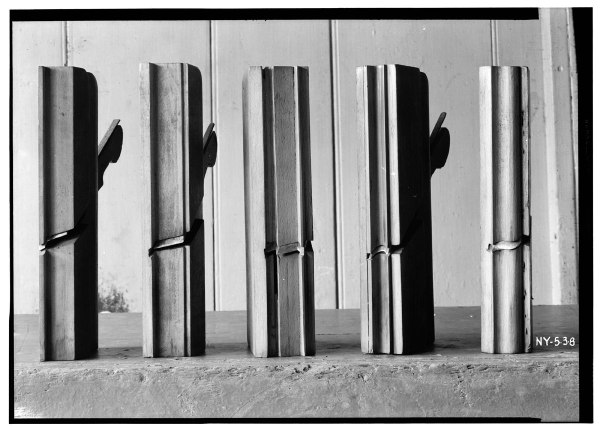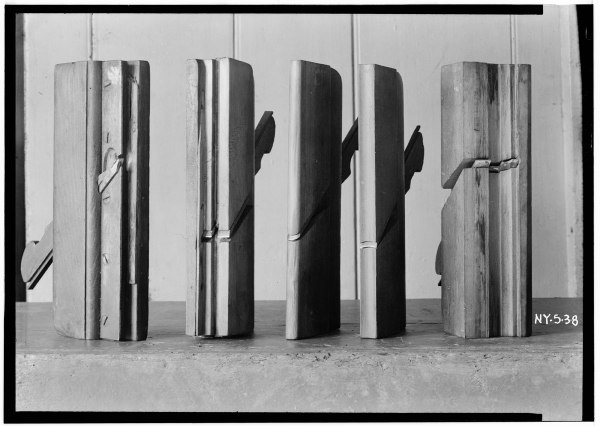
No Tools to Lend
These words, inscribed on the door of a farmer’s tool house, recently caught our eye, and furnished a ready theme for meditation. Borrowing is an ancient and evil custom, the fruitful source of many troubles. In the ruder stages of civilization there might have been greater necessity for borrowing than now; but as the world progresses there can be less and less need of it.
The tendency of cultivated humanity is to independent action—the tendency of barbarism is to a servile obligation. The more educated a community, the less they borrow, and consequently the more the borrowing element predominates, the greater their degradation.
There are several kinds of borrowers at the present day. There are the careful and the careless—the slack and the prompt —those who expect to pay for the privilege, and those who don’t expect to—those who help themselves without permission, and those who forget to return.
The careful, prompt, paying borrower is usually a welcome visitor. It is a pleasure to lend to such a man. This class know how to appreciate a favor, and it is of these that Solomon spoke when he said “the borrower is servant to the lender.”
But there is a class to whom the lender is servant, a degenerate class of borrowers, always to be dreaded. They wear a fair, smooth face to begin with, and a mean, sneaking face at the end. They take the precious property of another, and subject it to rougher usage and severer strain than does the owner. The chances are that the article is returned in a broken or damaged condition.
A man who can misuse a borrowed thing, seldom has delicacy enough to make amends for an injury. Thus insult is added to injury, and if complaint arises, neighbors often become enemies. That such are the frequent, final results of borrowing, any one familiar with social life knows.
At that farm house where the inscription above referred to was limned, there may have been peculiar reasons for it. Of these reasons we know nothing, and have no desire to. But our sympathies, quickened by trials in this lending line, have led us to recall cases that may have been real.
For example, farmer A keeps all sorts of tools neat, bright, and in perfect order. He prides himself on having tools, and sacrifices other pleasures to save money to buy and pay for them. He has neighbors who are unable or too stingy to buy, and so they live by borrowing, and making old apologies for tools answer instead. They can appreciate good tools, and are willing to save time in using them as well as anybody, but they never think about the propriety of remuneration.
Farmer A buys a new corn planter, and the season being backward, several neighbors are behind hand in planting, and apply for the use of the machine. The implement cost money: the owner never expecting to buy another, handles it himself carefully, and reluctantly loans it.
Some day after, when farmer A wants to use his machine, he has to hunt it up among his neighbors, and finds it dirty, unhoused, a nut lost off, and a wooden linchpin supplying the place of the appropriate iron one. As it has been used by several individuals, each throws the blame of damage upon the other, coolly leaving the owner to pocket the loss and its injury.
Again, farmer A gets a mowing machine, and puts it in running order some rainy day before the time of using. Soon after a neighboring farmer comes all prepared with his team, and wants to try it in his home lot, intimating that he thinks of buying when he can decide upon its merits.
The machine is allowed to depart, and finally returned by the borrower without thanks or offering, but with the cool impudence that it wouldn’t do its work. On examination the knives are found gapped and marked by the sticks and bricks through which it has run, and the loss of an important screw is a key to the mystery.
Other cases might be enumerated. Suffice it to say there are well off farmers in almost every town, who for years have depended upon less opulent neighbors for plows, rakes, forks, and grindstones. These things ought not to be. Every tub should stand or fall upon its own bottom.
It is neither charity or religion to lend to rich men without remuneration. A man’s tools are property, and like money are entitled to security and pay. We believe more and more in the sage advice to young men that Shakespeare put into the mouth of Polonius in the play of Hamlet:—
“Neither a borrower nor a lender be,
For loan oft loses both itself and friend,
And borrowing dulls the edge of husbandry.”
The Country Gentleman – July 11, 1861

The Lender is Servant to the Borrower.
Will you permit an old fellow who has seen some service in farming, and who has been a subscriber to your very useful paper since its first publication, to occupy a few lines in the Cabinet, for a purpose that perhaps some may consider of little importance.
The purpose indicated by the heading, to wit:—Borrowing, in many neighborhoods, and amongst considerate thoughtful farmers is not much practised; yet there are individuals who through downright carelessness and neglect of duty to themselves and their more provident neighbors, are much given to this species of imposition.
A proper spirit of accommodation, and a disposition to oblige and reasonably to promote the interests of neighbors, should always be encouraged and promoted, but it should never be carried to the point where it would assume the character of a regular systematic plan of operations.
Those who borrow, should resort to it as seldom as possible, and always return the article borrowed as early as practicable, and be sure that it is returned to its owner in good order. This is but a very plain principle of common sense and justice, and yet there are very frequent instances of its infringement, and that among well meaning, yet inconsiderate people.
On the farm that I was reared, care was taken to keep the implements of agriculture in good order, and to have a proper supply of them, but we had neighbors in good circumstances who instead of depending on their own resources, were constantly borrowing, first one article and then another, the year round, and it was somewhat of a rarity for them to send any thing home again; for they seemed to think it trouble enough to come for it in the first instance.
During my boy-hood, it fell to my lot when a loaned article was wanted to trudge off to the neighbor who had borrowed it and bring it home, and it was not unfrequent that it was unfit for use when brought home, and sometimes there was demur at the surrender of a borrowed article.
Now I hope there has been improvement in these matters since I was errand-boy, yet I fear there is still room for admonition on the subject of borrowing, and I concluded to drop you these few lines, that the boys of the present day, may know what has been the experience of those who were boys fifty years ago but are now
OLD MEN.
The Farmers’ Cabinet – April 13, 1838
—Jeff Burks